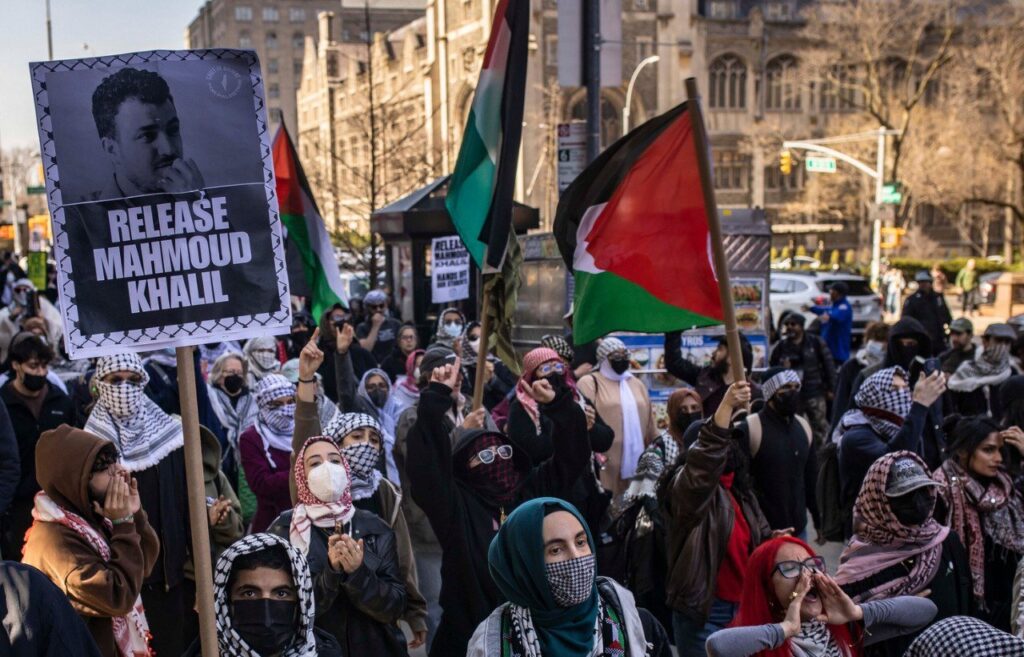TEHRAN – During his second presidential term, Donald Trump implemented a series of policies that have a major impact on US students, particularly those supporting Palestine and Gaza. Surrounded by the fight against anti-Semitism, these measures raised substantial concerns about freedom of speech, academic freedom, and targeting pro-Palestinian activists.
In January 2025, President Trump signed an executive order aimed at addressing what his administration allegedly was a surge in anti-Semitic activity on university campuses. The order directed federal agencies to explore civil and criminal conduct against students and university staff who advocate for the liberation of Palestine and criticize Israel’s actions in Gaza. In particular, the order was called to effectively confuse Israel’s criticism with anti-Semitism and to identify legal measures to deport non-citizen students involved in Palestinian protests.
Administration policies have led to concrete actions against student activists. For example, Rumeysa Ozturk, a Turkish student at Tufts University, was arrested by ICE (US Immigration and Customs Enforcement), and revoked his student visa after writing the Palestinian op-ED following an online smear campaign by an Israeli lobby group. Colombian student Mahmoud Khalil reportedly had both his visa and green card revoked after participating in a peaceful campus protest against the war in Gaza. In both cases, immigration enforcement was weaponized to punish dissent.
Financial pressure on academic institutions
Beyond individual actions, the Trump administration has put financial pressure on universities that are perceived as inadequately supporting its policies. Columbia University faced a $400 million loss in federal funding.
Brown University has frozen a $510 million NIH grant.
Harvard University has received an ultimatum with nine requests, including the demolition of the DEI (diversity, equity, inclusion) program and the ban on masks under the threat of losing $900 million, including the dismantling of DEI (diversity, equity, inclusion) program and the ban on masks in protests.
Princeton University and the University of Pennsylvania face similar research and funding threats.
These universities are forced to restructure internal policies, speech codes and student regulations in ways that critics argue that they are designed to set up the federal government rather than supporting academic integrity.
Criticism and legal challenges
These policies have attracted acute criticism from civil rights groups and legal experts. The American-Arab Anti-Discrimination Committee (ADC) warns that the executive order violates the rights of the First Amendment and undermines the basic freedoms of the association by targeting pro-Palestinian activists.
Legal scholars also highlight potential constitutional violations, and that immigration enforcement based on protected speeches is unconstitutional.
Impact on academic freedom
The administration’s actions have instilled anxiety among faculty and students, particularly at institutions like Harvard. Teachers have expressed concern about potential surrender to political pressures and fear that compliance with federal demands could undermine academic independence and freedom of expression.
The Trump administration’s policy of student behaviorism is not an isolated incident. They represent a broader trend in authoritarian governance, covered in the language of national security and anti-hate laws. By restraining opposition, weaponizing federal power over academic institutions, and confusing political criticism with hate speech, the administration is dismantling the very freedom it claims.
If a university, a traditional fortress of free thinking, succumbs to this pressure without resistance, its impact will ripple far beyond the Palestinian cause. Today it’s Gaza. Tomorrow, it could be climate action, anti-war protests, labor organisations, or any move to challenge powerful people.
How can the US defend freedom of expression in Iran, China or Russia while imprisoning its own students to peacefully protest the death of civilians in Gaza? How can Washington criticize other countries for stifling opposition while using ICE to detain foreign students who support the only “crime” that supports Palestinian rights?
This contradiction undermines America’s moral authority over the global arena and undermines the highly democratic ideals it claims to support. As the administration seeks to win hearts and hearts worldwide, these domestic actions reveal a troublesome double standard.

